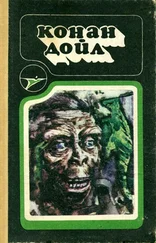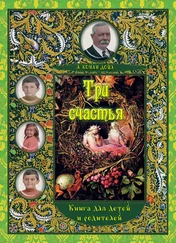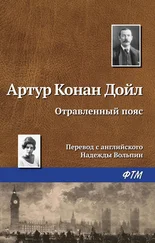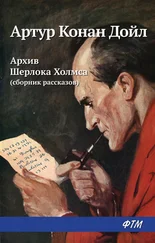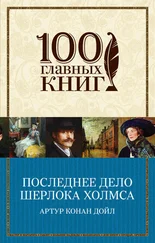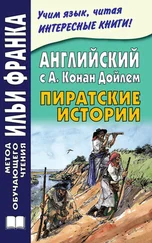Артур Дойл - Micah Clarke
Здесь есть возможность читать онлайн «Артур Дойл - Micah Clarke» — ознакомительный отрывок электронной книги совершенно бесплатно, а после прочтения отрывка купить полную версию. В некоторых случаях можно слушать аудио, скачать через торрент в формате fb2 и присутствует краткое содержание. Жанр: foreign_antique, foreign_prose, на английском языке. Описание произведения, (предисловие) а так же отзывы посетителей доступны на портале библиотеки ЛибКат.
- Название:Micah Clarke
- Автор:
- Жанр:
- Год:неизвестен
- ISBN:нет данных
- Рейтинг книги:3 / 5. Голосов: 1
-
Избранное:Добавить в избранное
- Отзывы:
-
Ваша оценка:
- 60
- 1
- 2
- 3
- 4
- 5
Micah Clarke: краткое содержание, описание и аннотация
Предлагаем к чтению аннотацию, описание, краткое содержание или предисловие (зависит от того, что написал сам автор книги «Micah Clarke»). Если вы не нашли необходимую информацию о книге — напишите в комментариях, мы постараемся отыскать её.
Micah Clarke — читать онлайн ознакомительный отрывок
Ниже представлен текст книги, разбитый по страницам. Система сохранения места последней прочитанной страницы, позволяет с удобством читать онлайн бесплатно книгу «Micah Clarke», без необходимости каждый раз заново искать на чём Вы остановились. Поставьте закладку, и сможете в любой момент перейти на страницу, на которой закончили чтение.
Интервал:
Закладка:
So much for your great-grandfather, Ironside Joe. I have preferred to put these passages before you, for on the principle that actions speak louder than words, I find that in describing a man’s character it is better to give examples of his ways than to speak in broad and general terms. Had I said that he was fierce in ins religion and subject to strange fits of piety, the words might have made little impression upon you; but when I tell you of his attack upon the officers in the tanning-yard, and his summoning us down in the dead of the night to await the second coming, you can judge for yourselves the lengths to which his belief would carry him. For the rest, he was an excellent man of business, fair and even generous in his dealings, respected by all and loved by few, for his nature was too self-contained to admit of much affection. To us he was a stern and rigid father, punishing us heavily for whatever he regarded as amiss in our conduct. He bad a store of such proverbs as ‘Give a child its will and a whelp its fill, and neither will strive,’ or ‘Children are certain cares and uncertain comforts,’ wherewith he would temper my mother’s more kindly impulses. He could not bear that we should play trick-track upon the green, or dance with the other children upon the Saturday night.
As to my mother, dear soul, it was her calm, peaceful influence which kept my father within bounds, and softened his austere rule. Seldom indeed, even in his darkest moods, did the touch of her gentle hand and the sound of her voice fail to soothe his fiery spirit. She came of a Church stock, and held to her religion with a quiet grip which was proof against every attempt to turn her from it. I imagine that at one time her husband had argued much with her upon Arminianism and the sin of simony, but finding his exhortations useless, he had abandoned the subject save on very rare occasions. In spite of her Episcopacy, however, she remained a staunch Whig, and never allowed her loyalty to the throne to cloud her judgment as to the doings of the monarch who sat upon it.
Women were good housekeepers fitly years ago, but she was conspicuous among the best. To see her spotless cuffs and snowy kirtle one would scarce credit how hard she laboured. It was only the well ordered house and the dustless rooms which proclaimed her constant industry. She made salves and eyewaters, powders and confects, cordials and persico, orangeflower water and cherry brandy, each in its due season, and all of the best. She was wise, too, in herbs and simples. The villagers and the farm labourers would rather any day have her advice upon their ailments than that of Dr. Jackson of Purbrook, who never mixed a draught under a silver crown. Over the whole countryside there was no woman more deservedly respected and more esteemed both by those above her and by those beneath.
Such were my parents as I remember them in my childhood. As to myself, I shall let my story explain the growth of my own nature. My brothers and my sister were all brownfaced, sturdy little country children, with no very marked traits save a love of mischief controlled by the fear of their father. These, with Martha the serving-maid, formed our whole household during those boyish years when the pliant soul of the child is hardening into the settled character of the man. How these influences affected me I shall leave for a future sitting, and if I weary you by recording them, you must remember that I am telling these things rather for your profit than for your amusement; that it may assist you in your journey through life to know how another has picked out the path before you.
Chapter II. Of my going to school and of my coming thence
With the home influences which I have described, it may be readily imagined that my young mind turned very much upon the subject of religion, the more so as my father and mother took different views upon it. The old Puritan soldier held that the bible alone contained all things essential to salvation, and that though it might be advisable that those who were gifted with wisdom or eloquence should expound the Scriptures to their brethren, it was by no means necessary, but rather hurtful and degrading, that any organised body of ministers or of bishops should claim special prerogatives, or take the place of mediators between the creature and the Creator. For the wealthy dignitaries of the Church, rolling in their carriages to their cathedrals, in order to preach the doctrines of their Master, who wore His sandals out in tramping over the countryside, he professed the most bitter contempt; nor was he more lenient to those poorer members of the clergy who winked at the vices of their patrons that they might secure a seat at their table, and who would sit through a long evening of profanity rather than bid good-bye to the cheesecakes and the wine flask. That such men represented religious truth was abhorrent to his mind, nor would he even give his adhesion to that form of church government dear to the Presbyterians, where a general council of the ministers directed the affairs of their church. Every man was, in his opinion, equal in the eyes of the Almighty, and none had a right to claim any precedence over his neighbour in matters of religion. The book was written for all, and all were equally able to read it, provided that their minds were enlightened by the Holy Spirit.
My mother, on the other hand, held that the very essence of a church was that it should have a hierarchy and a graduated government within itself, with the king at the apex, the archbishops beneath him, the bishops under their control, and so down through the ministry to the common folk. Such was, in her opinion, the Church as established in the beginning, and no religion without these characteristics could lay any claim to being the true one. Ritual was to her of as great importance as morality, and if every tradesman and farmer were allowed to invent prayers, and change the service as the fancy seized him, it would be impossible to preserve the purity of the Christian creed. She agreed that religion was based upon the Bible, but the Bible was a book which contained much that was obscure, and unless that obscurity were cleared away by a duly elected and consecrated servant of God, a lineal descendant of the Disciples, all human wisdom might not serve to interpret it aright. That was my mother’s position, and neither argument nor entreaty could move her from it. The only question of belief on which my two parents were equally ardent was their mutual dislike and distrust of the Roman Catholic forms of worship, and in this the Churchwoman was every whit as decided as the fanatical Independent.
It may seem strange to you in these days of tolerance, that the adherents of this venerable creed should have met with such universal ill-will from successive generations of Englishmen. We recognise now that there are no more useful or loyal citizens in the state than our Catholic brethren, and Mr. Alexander Pope or any other leading Papist is no more looked down upon for his religion than was Mr. William Penn for his Quakerism in the reign of King James. We can scarce credit how noblemen like Lord Stafford, ecclesiastics like Archbishop Plunkett, and commoners like Langhorne and Pickering, were dragged to death on the testimony of the vilest of the vile, without a voice being raised in their behalf; or how it could be considered a patriotic act on the part of an English Protestant to carry a flail loaded with lead beneath his cloak as a menace against his harmless neighbours who differed from him on points of doctrine. It was a long madness which has now happily passed off, or at least shows itself in a milder and rarer form.
Foolish as it appears to us, there were some solid reasons to account for it. You have read doubtless how, a century before I was born, the great kingdom of Spain waxed and prospered. Her ships covered every sea. Her troops were victorious wherever they appeared. In letters, in learning, in all the arts of war and peace they were the foremost nation in Europe. You have heard also of the ill-blood which existed between this great nation and ourselves; how our adventurers harried their possessions across the Atlantic, while they retorted by burning such of our seamen as they could catch by their devilish Inquisition, and by threatening our coasts both from Cadiz and from their provinces in the Netherlands. At last so hot became the quarrel that the other nations stood off, as I have seen the folk clear a space for the sword-players at Hockley-in-the-Hole, so that the Spanish giant and tough little England were left face to face to fight the matter out. Throughout all that business it was as the emissary of the Pope, and as the avenger of the dishonoured Roman Church, that King Philip professed to come. It is true that Lord Howard and many another gentleman of the old religion fought stoutly against the Dons, but the people could never forget that the reformed faith had been the flag under which they had conquered, and that the blessing of the Pontiff had rested with their opponents. Then came the cruel and foolish attempt of Mary to force upon them a creed for which they had no sympathy, and at the heels of it another great Roman Catholic power menaced our liberty from the Continent. The growing strength of France promoted a corresponding distrust of Papistry in England, which reached a head when, at about the time of which I write, Louis XIV. threatened us with invasion at the very moment when, by the revocation of the Edict of Nantes, he showed his intolerant spirit towards the faith which we held dear. The narrow Protestantism of England was less a religious sentiment than a patriotic reply to the aggressive bigotry of her enemies. Our Catholic countrymen were unpopular, not so much because they believed in Transubstantiation, as because they were unjustly suspected of sympathising with the Emperor or with the King of France. Now that our military successes have secured us against all fear of attack, we have happily lost that bitter religious hatred but for which Oates and Dangerfield would have lied in vain.
Читать дальшеИнтервал:
Закладка:
Похожие книги на «Micah Clarke»
Представляем Вашему вниманию похожие книги на «Micah Clarke» списком для выбора. Мы отобрали схожую по названию и смыслу литературу в надежде предоставить читателям больше вариантов отыскать новые, интересные, ещё непрочитанные произведения.
Обсуждение, отзывы о книге «Micah Clarke» и просто собственные мнения читателей. Оставьте ваши комментарии, напишите, что Вы думаете о произведении, его смысле или главных героях. Укажите что конкретно понравилось, а что нет, и почему Вы так считаете.


